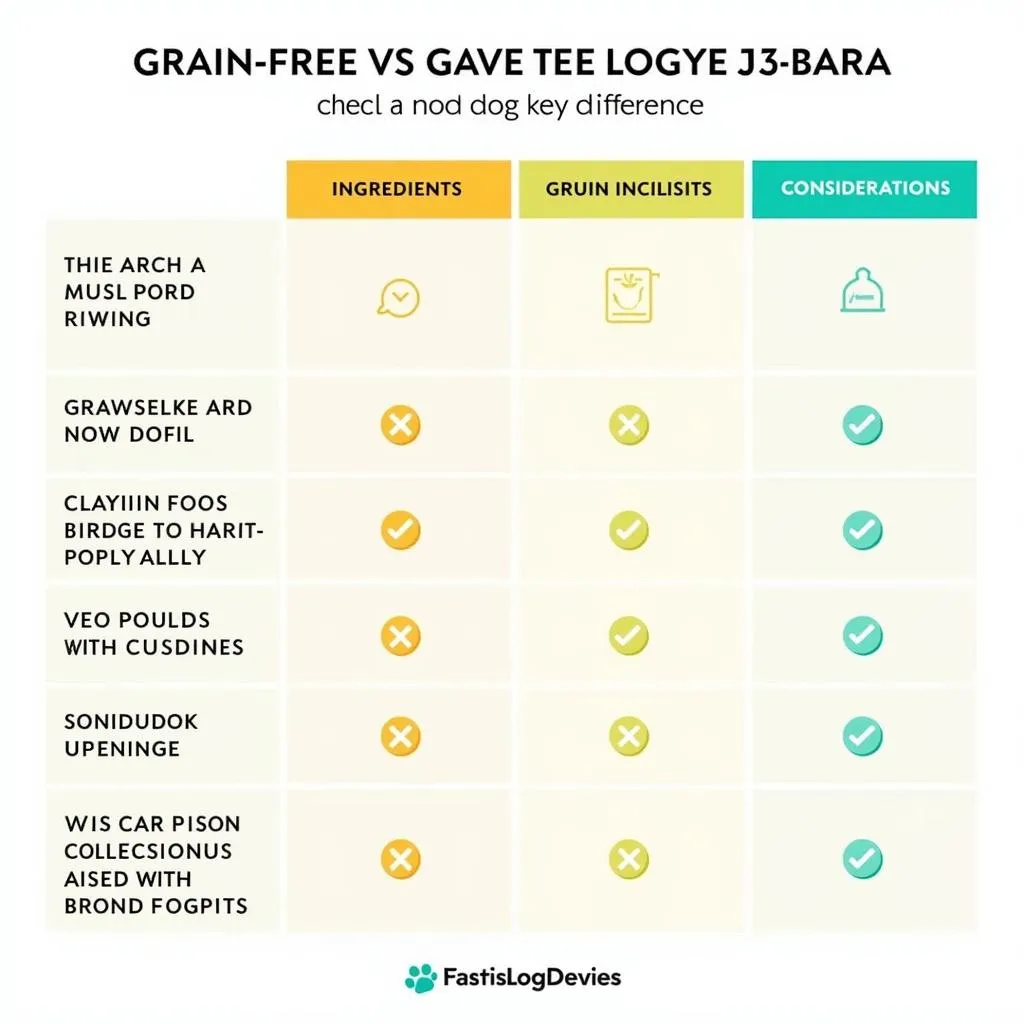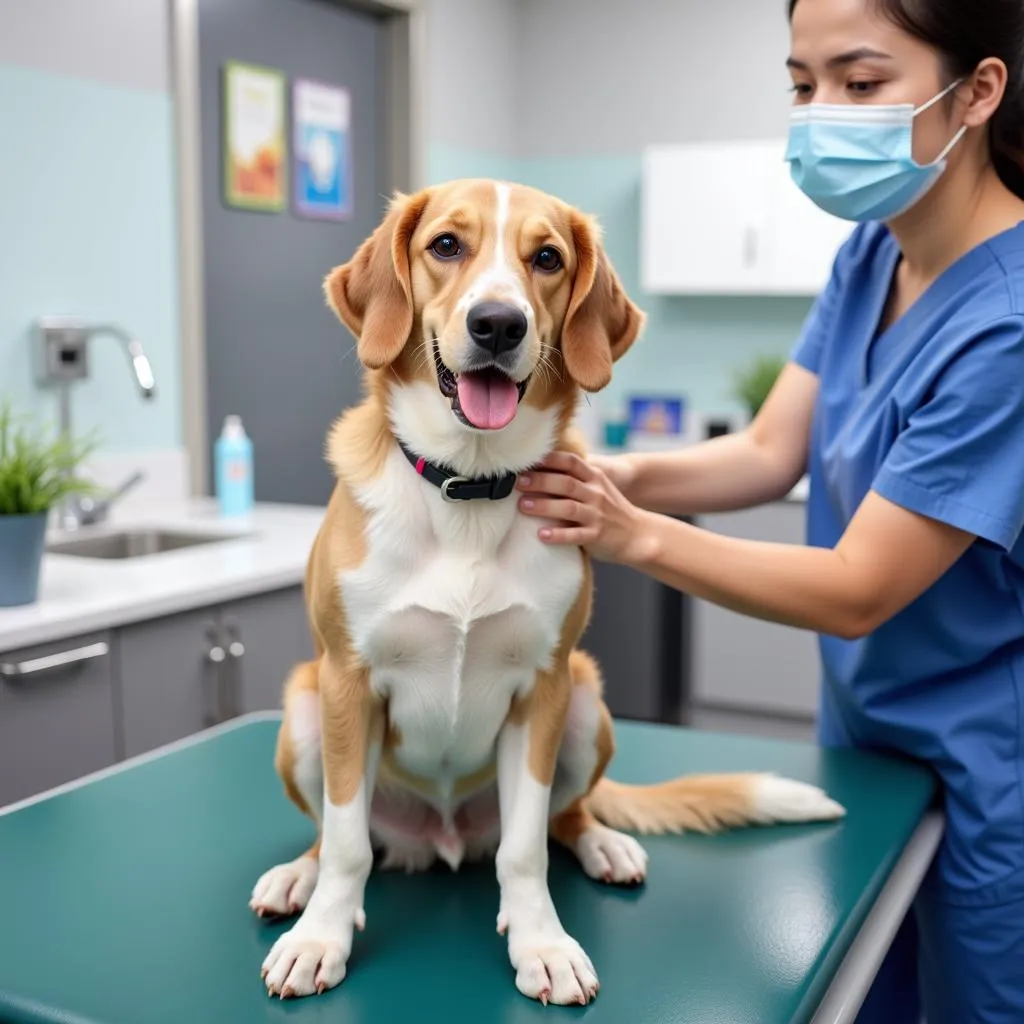Meat-based dog foods are a popular choice among pet owners looking to provide their furry companions with a diet that closely mimics their ancestral eating habits. But with so many options available, choosing the right meat-based food for your dog can feel overwhelming. This comprehensive guide delves into everything you need to know about meat-based dog foods, empowering you to make informed decisions that support your dog’s health and happiness.
 Dog Enjoying Meat-Based Food
Dog Enjoying Meat-Based Food
Understanding the Benefits of Meat-Based Dog Food
Dogs, as descendants of wolves, are biologically carnivores, meaning their bodies are designed to thrive on a diet rich in animal protein. While modern dogs have evolved to digest some plant matter, meat remains a cornerstone of their nutritional needs. Here’s why:
- High-Quality Protein: Meat serves as an excellent source of highly digestible protein, providing essential amino acids that are crucial for muscle development, tissue repair, and overall growth.
- Enhanced Digestibility: Meat-based proteins are easier for dogs to break down and absorb compared to plant-based proteins, leading to better nutrient utilization and less digestive upset.
- Natural Source of Essential Nutrients: Meat naturally contains vital nutrients like taurine, an amino acid that plays a critical role in heart health, vision, and reproduction.
- Increased Palatability: Let’s be honest, dogs love the taste of meat! Meat-based foods are naturally more appealing to their palates, making mealtime a more enjoyable experience.
Navigating the World of Meat-Based Dog Foods
When choosing a meat-based dog food, it’s essential to look beyond marketing claims and carefully examine the ingredient list. Here’s a breakdown of key factors to consider:
1. Identifying the Protein Source
The first ingredient listed should always be a named meat source, such as chicken, beef, lamb, fish, or turkey. Avoid vague terms like “meat meal” or “poultry by-products,” which can indicate lower-quality ingredients.
2. Whole Meat vs. Meat Meal
While whole meat, like “deboned chicken,” is a great option, don’t discount meat meal. High-quality meat meal, such as “chicken meal,” is simply meat that has been cooked and ground, concentrating the protein content.
3. Grain-Free vs. Grain-Inclusive
The decision to go grain-free depends on your dog’s individual needs. Some dogs thrive on grain-free diets, while others benefit from the added nutrients and fiber found in whole grains like brown rice or oatmeal.
 Grain-Free vs. Grain-Inclusive Dog Food Comparison
Grain-Free vs. Grain-Inclusive Dog Food Comparison
4. Life Stage and Breed Size
Different life stages require different nutritional profiles. Puppies, for example, need higher levels of protein and fat for growth, while senior dogs may benefit from formulas that support joint health. Breed size also plays a role, as larger breeds have different needs than smaller breeds.
“The Importance of High-Quality Ingredients Cannot Be Overstated,” Says Dr. Emily Carter, Veterinary Nutritionist
Dr. Carter emphasizes that “When selecting a meat-based dog food, always prioritize quality over quantity. A shorter ingredient list with recognizable, whole-food ingredients is a good indicator of a nutritionally balanced diet.”
Making the Switch to Meat-Based Dog Food
If you’re transitioning your dog to a new meat-based food, do so gradually over a week to ten days. Start by mixing a small amount of the new food with their current food and slowly increase the ratio until they are fully transitioned. This helps prevent digestive upset.
Common Questions About Meat-Based Dog Foods
Q: Can meat-based diets cause allergies in dogs?
Yes, just like humans, dogs can develop allergies to certain proteins, including those found in meat. If you suspect your dog has a food allergy, consult with your veterinarian for proper diagnosis and dietary recommendations.
Q: Are raw meat diets safe for dogs?
Raw meat diets have gained popularity, but they also come with potential risks, such as bacterial contamination. If you’re considering a raw diet for your dog, discuss the potential risks and benefits with your veterinarian.
 Dog at the Vet
Dog at the Vet
Choosing the Best for Your Furry Friend
Selecting the right meat-based dog food is a personal decision that should be tailored to your dog’s specific needs. Factors like age, breed, activity level, and any existing health conditions all come into play.
Need help navigating the world of Cleveland County fair food vendors? Our team is here to assist you. Contact us at 02437655121, email us at minacones@gmail.com, or visit our location at 3PGH+8R9, ĐT70A, thôn Trung, Bắc Từ Liêm, Hà Nội, Việt Nam. We offer 24/7 customer support to answer all your questions.